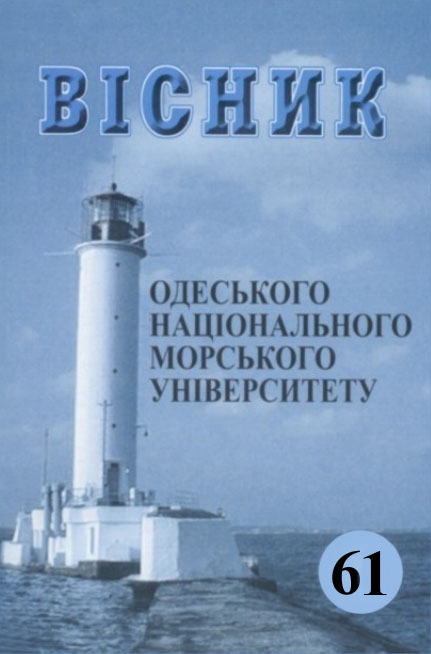Methodology hybridization of infrastructure projects and programs management
Main Article Content
Abstract
The subject of the article is the development of hybrid project management methodologies, programs and project portfolios. Substantial reductions in the life cycles of infrastructure programs containing projects of different activities and different management methodologies, such as rigid life cycle waterfalls and Agile flexible life cycle methodologies, require the use of convergence tools to form hybrid methodologies. The goal is to develop a convergent approach to building hybrid project management methodologies in terms of decision-making processes in project management based on different platforms. The results of the study are based on the use of a convergent approach to the construction of the methodology for managing infrastructure projects and programs. A substantive model of the obtained hybrid project and program management methodology is presented. Conclusions: Hybrid project and program management methodologies are becoming more popular in this category of programs. The main reason is the presence in the program of components with different life cycles and, therefore, methodologies that require integration and harmonization. The methodology is tested by the practice of using mechanisms of hybrid multilevel management of infrastructure projects and programs. Research on hybrid project and program management methodologies for the specific practice of implementing different, essentially program components. The application of a hybrid project management methodology allowed the authors to execute differently, essentially, projects within a specified timeframe with a given budget, for example, complex construction projects and projects for the creation of information and communication infrastructure management systems. Further areas of research are related to the detailed development of harmonization, integration, convergence and actualization mechanisms.
Article Details
References
2. Bushuyev S., Verenych O. Organizational maturity and project: Program and portfolio success. Developing Organizational Maturity for Effective Project Management. p. 104-127, 2018.
3. Bushuyev O., Murzabekova A., Murzabekova S., Khusainova M. Develop breakthrough competence of project managers based on entrepreneurship energy. Proceedings of the 12th International Scientific and Technical Conference on Computer Sciences and Information Technologies, p. 11-16, CSIT 2017.
4. Bushuyev S., Bushuiev D., Rogozina V., Mikhieieva O., Convergence of knowledge in project management. Proceedings of the 2015 IEEE 8th International Conference on Intelligent Data Acquisition and Advanced Computing Systems: Technology and Applications, IDAACS. С. 496-500, 2015.
5. Todorović M., Petrović D., Mihić M., Obradović V., Bushuyev S. Project success analysis framework: A knowledge-based approach in project management. International Journal of Project Management, 33(4). P. 772-783, 2015.
6. Bushuyev S.D., Bushuyeva N.S., Babayev I.A., Yakovenko V.B., Grisha Ye. V, Dzyuba S.V., Voytenko A.S. Kreativnyye tekhnologii upravleniya proyektami i programmami: Monografiya. K., Sammit-Kniga, 2010, 768 p.
7. Bushuyev S.D., Bushuyeva N.S., Neizvestnyy S.I. Mekhanizmy konvergentsii metodologiy upravleniya proyektami. Upravleniye razvitiyem slozhnykh system. Vol. 11, 2012, 5-13.
8. Saynisch M. Beyond frontiers of traditional project management: An approach to evolutionary, self–organizational principles and the complexity theory − Results of the research program. Project Management Journal, 2010, 41(2), 21-37.
9. Bushuyev S., Wagner R. IPMA Delta and IPMA Organizational Competence Baseline (OSB): New approaches in the field of project management maturity/ International Journal of Management Projects in Business, 2014, 7(2), 302-310.
10. Bushuyev S.D., Neizvestnyy S.I. Shestoye chuvstvo v upravlenii razvitiyem: intuitsiya kak kanal kommunikatsii i sredstvo prinyatiya resheniy. Upravleniye razvitiyem slozhnykh sistem, 2011, Vol. 7, 8-15.
11. Neizvestnyy S.I., Chernykh N.V. Rol' izmenennykh sostoyaniy soznaniya pri prinyatii resheniy v menedzhmente. Upravleniye proyektami i programmam,. 2012, Vol. 1, 56-65; Vol. 2, 114-123.
12. Luger G.F. Artificial Intelligence. Structures and Strategies for Complex Problem Solving. 6 Edition. University of New Mexico: Pearson, 2008, 784 p.
13. Leybourne, S.A. Improvisation and agile project management: A comparative consideration. International Journal of Managing Projects in Business, 2009, 2(4), 519-535.
14. Spundak M. Mixed agile/traditional project management methodology – reality or illusion? 27th IPMA World Congress. Procedia − Social and Behavioral Sciences, Vol.119, 2014, 939-948.
15. Chow, T. & Cao, D. A survey study of critical success factors in agile software projects. The Journal of Systems and Software, 2008, 81(6), 961-971.
16. Fernandez, D.J. & Fernandez, J.D. Agile Project Management – Agilism versus traditional approaches. Journal of Computer Information System, 2008, 49(2), 10-17.
17. Boehm, B. & Turner, R. Management challenges to implementing agile processes in traditional development organizations. IEEE Software, 2005, 22(5), 30-39.
